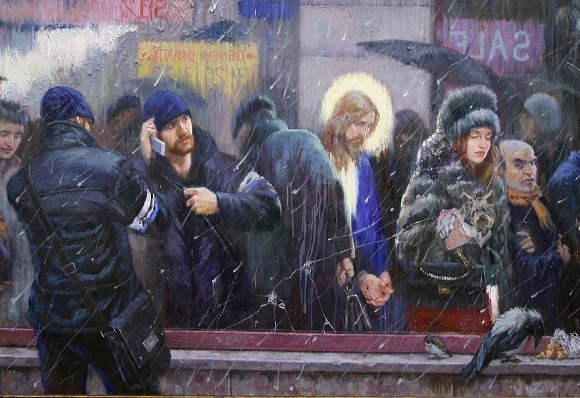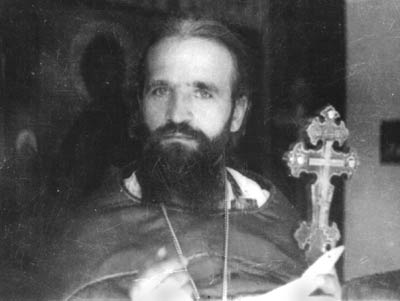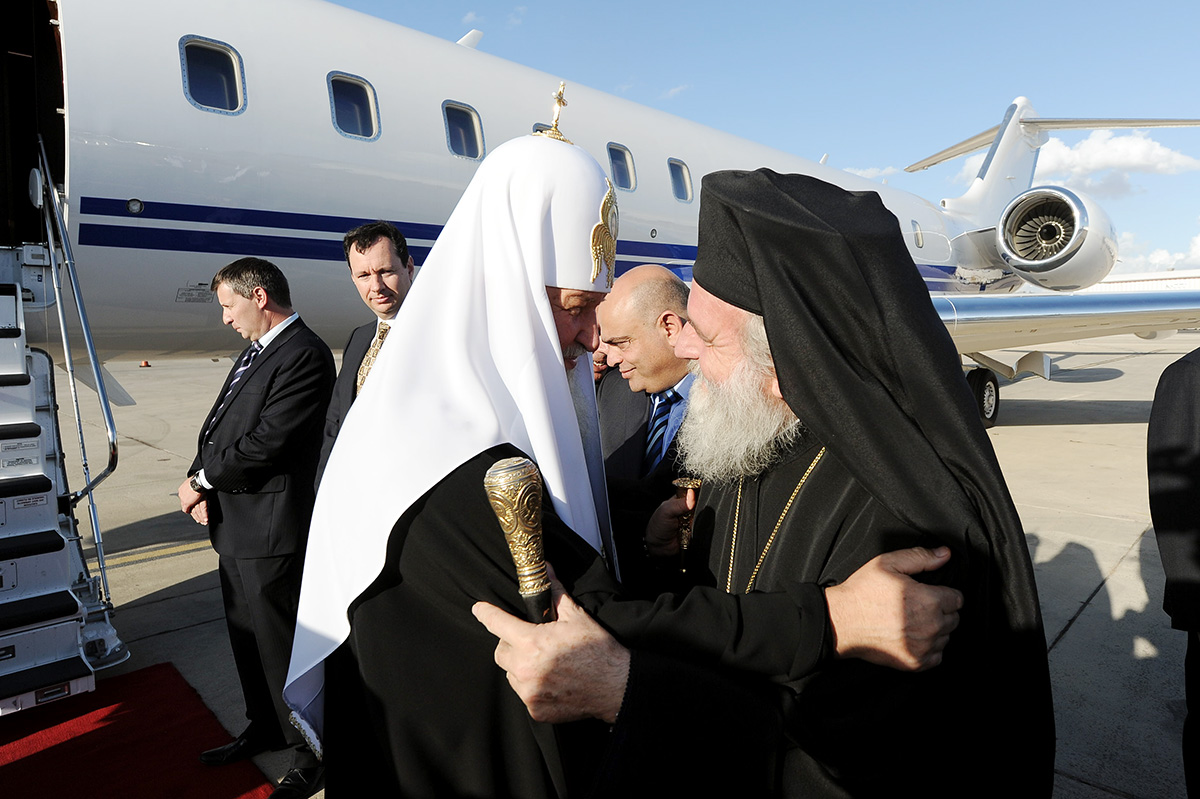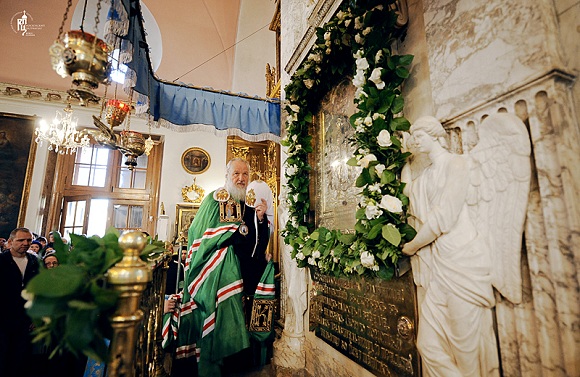Subdeacon Benjamin: In the context of this sermon, which is translated
from Russian, the word "heard" must be read loosely. The Patriarch is
addressing those who pray sincerely and yet don't receive, and yes still
trust in God and His wisdom but do not stop there. They want to grow
through the experience, learn, and become better. This is where the
Patriarch's sermon applies. How is it that I become someone who prays
more according to God's will, and also even more like those who the
Scriptures tell us moved God to either action or to stay His hand. This
is what the Patriarch means by being "heard".
In this respect, we are often not "heard". We pray for people to
live, yet they die. We pray for healing, yet we still suffer. We pray
for lots of things, yet we are not like those in the Scriptures that
moved God. Patriarch Kyrill offers a path to change that:
“How you want the Lord to treat you is how you should treat your neighbors.”
This is the means by which we better follow God and thus improve the
quality of our prayers to Him. It's important to look at this
principle NOT legalistically, but qualitatively. If I show contempt for
that which my Father loves, then what kind of a son am I? Should I
expect that my Father will "hear" me cheerfully and enthusiastically?
No. He will "hear" that I need to be disciplined. I should instead
repent and sensitively care for what He loves, other people, especially
the poor. Then when I pray He will certainly "hear" me more eagerly
because I love what He loves.
Patriarch Kirill of Moscow and All Russia
Nov 5th, 2012
 |
| Vladimir Nikolaevich Kireev, “The Mirror” (2009). (Fragment)
|
His Holiness, Patriarch Kirill of Moscow and All Russia,
delivered the following sermon on November 6, 2011, in the Church of the
Joy of All Who Sorrow on Bolshaya Ordynka Street in Moscow. In his
sermon, His Holiness combines a consideration of the Sunday Gospel
reading (Luke 16:19-31) with reflections on the feast day of the Icon of
the Joy of All Who Sorrow, which that year fell on Sunday. This year
the icon is commemorated on this coming Tuesday.
Your Eminences and Graces! Dear Vladyka Hilarion!
I would like to thank you cordially for your kind words, for the
wonderful gift of the icon of St. Alexis, Metropolitan of Moscow, and
for the vestments that were sewn to match those depicted on this icon.
Indeed, the Church is called upon to preserve tradition for one
simple reason: because it is in the Church that man overcomes time. We
have various means of dipping into the past: we can, for instance, read
books or watch historical films – but this only makes us spectators of
the past. In the Church, however, man becomes not just a spectator but,
by the power of the Holy Spirit, a participant in all that the Lord has
done for our salvation and even in that which is to come: in His birth,
life, preaching, suffering, death, Resurrection, Ascension to the right
hand of the Father, and His glorious Second Coming.
It is in the Church, by the power of the Holy Spirit, that we, who
are limited and weak, can partake of eternity through the Holy
Mysteries; we can partake of that which was, which is, and which will
be. It is in the Church, by the power of the Holy Spirit, that the
Kingdom of God is revealed to us. It is no accident that at the
beginning of the Church’s primary Mystery, that of the Holy Eucharist,
we loudly proclaim these great words: “Blessed is the Kingdom of the
Father, and of the Son, and of the Holy Spirit!” This is because it is
by the power of the Holy Spirit, through the prayers of the Church’s
faithful, and in the community of the faith that the Kingdom of God is
revealed to us.
We can come into contact with the Kingdom, although only slightly,
while still living in this sinful world; but we do not always live
according to the Law of God, rather we often live according to the law
of passion and sin. How often this fleeting contact with the Kingdom of
God during the Divine Liturgy – which calls forth joy, peace, and rest
in our hearts – quickly vanishes and dissipates. Then once again we are
left face to face with sin, with the passions, with sorrows…
But the Lord grants us the great opportunity of constantly coming
into contact with His eternal and heavenly Kingdom: this means of coming
into contact with God is prayer. Prayer possesses great power, but
there is one necessary condition for our prayer truly to unite us with
the Lord; there is one condition that must be met for God to answer our
prayers.
In today’s reading from the Gospel according to Luke we are offered
the Savior’s parable of the rich man and Lazarus (Luke 16:19-31). This
is one of the few places in Holy Scripture that offers us a glimpse of
the mystery of the afterlife. Most likely no human words, knowledge, or
categories of thought can give visible expression to the world that
exists after man’s physical death. The Lord therefore speaks about this
world in a language understandable to his hearers. He tells the parable
of the rich man who lived sumptuously and the unfortunate and hungry
Lazarus, who lay at the rich man’s gate covered in sores. Following his
death, the unfortunate Lazarus – who had been covered in sores, who had
been humiliated and powerless – found himself in the bosom of Abraham,
in the Heavenly Kingdom; but the rich and successful man found himself
in hades.
Reflecting on the meaning of this parable, St. Cyprian of Carthage
spoke words that St. Basil the Great later repeated. These words help us
to understand the necessary condition for God to hear our prayers: “If
we do not hear the entreaties of the poor, then we are undeserving to
have our prayers heard by God.” What wonderful and astonishing words!
They resonate with the foundational “golden” rule of life laid down in
the Gospel:
Therefore all things whatsoever ye would that men should do to you, do ye even so to them (Matthew 7:12).
These words can also be paraphrased so as to say: “How you want the
Lord to treat you is how you should treat your neighbors,” because the
Lord appears to us in the image of our neighbor. If we are indifferent
to the sorrows of others, if our hearts are deaf and unresponsive to
human sorrow and need, then we will pray and weep in vain – these will
be crocodile tears, tears for ourselves, tears that are not pleasing to
God. Our prayer must be accompanied by help and love for our neighbors.
Then we will be with Lazarus in the bosom of Abraham, then the Lord will
hear our sighs.
As St. Cyril put it so beautifully, the entire mystery of our
spiritual lives depends on this. There can be no prayer without good
deeds; there can be no hope of salvation without good deeds, for faith
without works is dead (cf. James 2:17).
His Holiness venerating the Icon of the Joy of All Who Sorrow, November 6, 2011, Moscow
When we enter this church with all our sorrows, when we bow down
before the Icon of the Joy of All Who Sorrow and ask the Queen of Heaven
to help us in our sorrow, let us then recall: Have we always helped the
sorrowful? Have we not coldly and heartlessly passed by those asking
for help? Have we perhaps justified ourselves by saying: I will not help
them, they are such-and-such; there is no need to waste strength of
soul and time on them… Then why should the Mother of God help us?
Only
because we are weeping before the icon from the pain that life
circumstances have inflicted upon our hearts? Is this enough? St.
Cyprian teaches us: no, it is not enough.
This is why an Orthodox parish or community that celebrates the Holy
Eucharist, which comes into contact with the Kingdom of God by the power
of the Holy Spirit, should be a place of mercy, charity, and real love –
perhaps first of all to needy parishioners, to those standing right
next to us: those who might not eat today after the Divine Liturgy;
those who might shiver from the cold because their clothing is poor;
those who live in unknown circumstances. After all, it often happens
that people who come to church are alone and do not have what others
have, for which reason they are seeking our help here. The Lord can send
such help only through us, through our hands. Then, having graciously
responded to the pain and suffering of another person, we will be heard
by God and His Most Pure Mother, receiving that for which we have
prayed.
All of this is taught to us by today’s feast day of the Icon of the
Joy of All Who Sorrow; the wonderful Gospel reading teaches us this as
well, unlocking the mystery of the afterlife; and that great saint,
Cyprian of Carthage, who upheld Orthodoxy during the difficult
persecution of faith in the third century, also teaches us this. Let us
listen to these words and to this call, recognizing the connection
between salvation and good deeds! As we embark on the path of performing
good deeds, may the Lord grant us the joy of feeling His real presence
in our lives! And may this feeling strengthen in us the faith and
determination to do good for the glory of His holy name! Amen.
Source: pravmir.com





